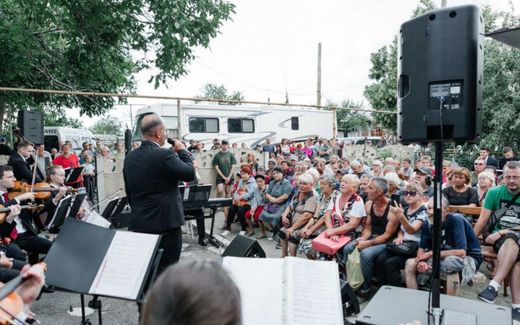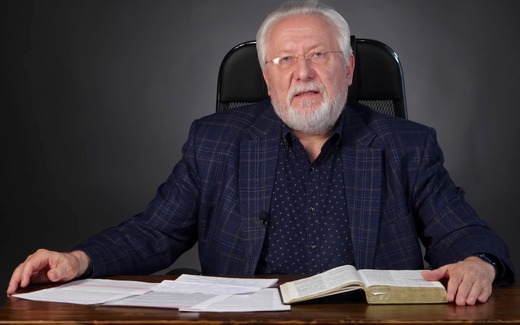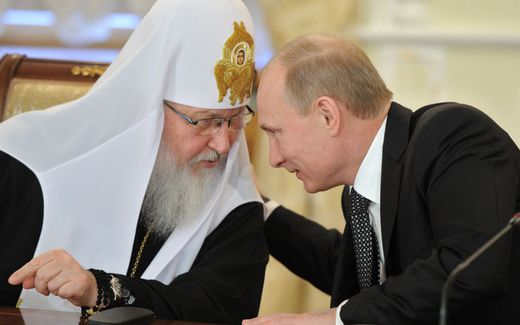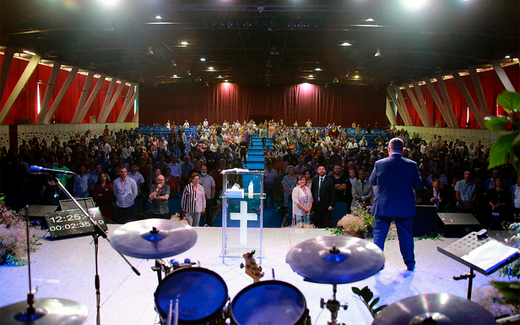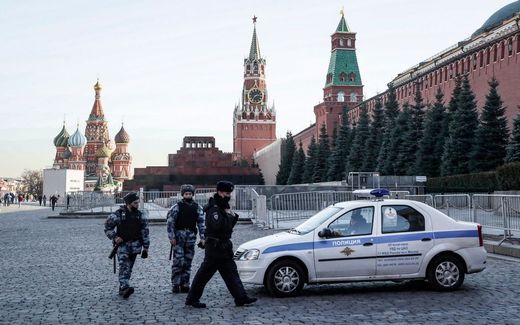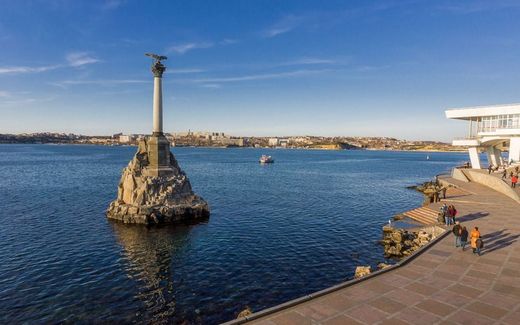Will the divide between Russian and Ukrainian Protestants ever heal?
15-08-2022
Eastern Europe
William Immink, CNE.news
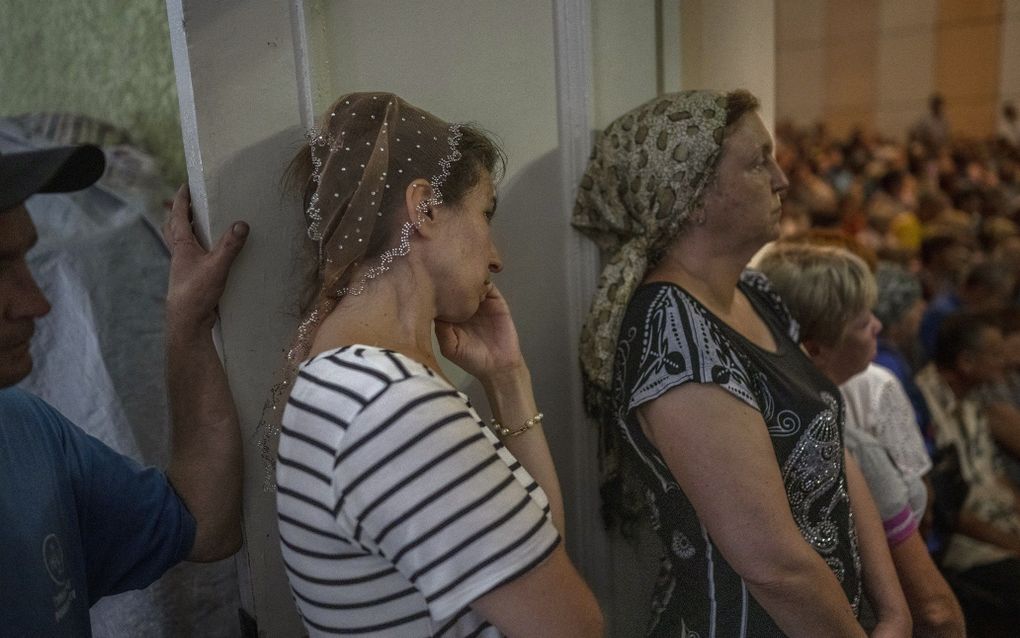
People attend a service in a church in Donbass region. Photo AFP, Bulent Kilic
Eastern Europe
The Russian-Ukrainian conflict has divided a once tight and cooperating church through family lines, friends, and brothers. This tragedy makes people wonder: will there ever be a reconciliation?
Ever since the ugly conflict started in Ukraine back in 2014, the relationship has been deteriorating between Ukrainian and Russian Protestant Christians. Now, since the heating up of the conflict in February, preserving unity is even more complicated. Many Ukrainian Protestant Sunday services even switched from Russian to Ukrainian.
On February 24, the day the conflict in the Donbass escalated, ECB Unions (Evangelical Christian Baptists Unions) from twelve former Soviet states including both the Russian and Ukrainian ECB signed a letter to Vladimir Putin proposing a stop in fighting and starting negotiations. Peace is better than this conflict of ‘fratricide’, both parties agreed in unity it seemed. Since then, however, the relationship has deteriorated.
In July 2022 the Ukrainian leadership of the ECB came out with an open appeal to the Russian Union of ECB, saying that the position of many ministers of the ECB are “unacceptable” and “irresponsible”. According to the Ukrainian leadership, Russian Baptists have fallen to the “propaganda of the destructive ideology” of the “Russian world”.
Russian Pentecostals have an even harder time finding common ground. Interestingly, Pentecostals seem more outspoken when it comes to politics then their Baptists brothers. It might then be no surprise that Kyiv ‘Word of Life’ Church left its Russian umbrella union of ROSHVE in Moscow, after its leader Sergey Ryakhovski spoke out against fascism in Ukraine.
One thing seems clear: The divide between Russian and Ukrainian Christians is deeper than ever.
Identity
Many ethnic Ukrainian Christians have a more ‘monist’ view of their country. According to many native Ukrainians their country is a cultural and political unity. For the last thirty years the country has been trying to ‘throw off’ the chains of communism and Russian imperialism in order to find an own identity, focussed on the West.
Many ethnic Russians, however, emphasise the historical differences between regions within Ukraine. Where the Donbass has always been more pro-Russian, the western cities of Lvov and Rovno were part of Poland. To build a modern republic, those cultural, lingual, and ethnical differences must be accepted and respected by government, which it – in the eyes of many Russians – has not been for a long time.
But there are also theological differences, writer William Yoder (72) argues: “In general, Russians are old-fashioned. They prefer the Soviet model”. The Russian Baptist Union always tries to stay away from politics. Even back in 2014 when Russia took the Crimea peninsula, they were quoted saying: “This is not our war”. Yoder: “That old-fashioned position makes a much more globalised orientation”.
Ukrainian Christians, both Baptists and Pentecostals are much more politically engaged, Yoder says: “They talk about a modern Baptist Church, taking the model from the American one. Very loyal to the state and very active in politics”. It explains how a Baptist pastor, Alexander Turchynov, could become an interim president back in 2014 after the Maidan coup d’états. In Russia he received the nickname ‘bloody pastor’ for his militant anti-Russian stance.
Hate
It is exactly the non-political stance of many Russian Protestants that makes Ukrainians angry. Not standing up to an – in Ukrainian eyes – tyrant dictator in the Kremlin is a sin by itself. Ukrainian Christians even go so far to quote Bonhoeffer and Niemöller, both theologians resisted Hitlers Nazi-Germany. But according to Yoder, that “makes everything into black and white and you give the other side no chance”. One cannot simply “use that in all kinds of other situations of conflict since then”.
One example from Yoder is the case of Gennady Mokhnenko, a chaplain in the Ukrainian army, working with humanitarian aid. According to him the many deaths in Ukraine is the fault of “Russian bishops and ‘apolitical’ pastors” with their “long-term silence”. On his Facebook page he wrote about “cursed” Russians, calling them “non-humans”. One follower wrote: “How about love your enemies”. When contacted, Mokhnenko failed to answer questions on this topic.
I’m very much concerned about the Ukrainian position, Yoder said: “I don’t want to talk about hate, because if you accuse others of hate… where are you yourself. It’s a tough one. It’s a huge accusation. But I’m very worried about the very partisan position of the Ukrainian Protestant Evangelicals being Baptists or Pentecostal, or Lutheran. And I very much prefer the more neutral old-fashioned Russian position.”
Little brother
It is an obvious fact that Ukraine and Russia have different positions on the world stage. Where Ukraine seems to have no problem being a little brother of the Americans and Europeans, Russia will not play by that playbook. They want to be big amongst equals, together with China and the USA. And according to Yoder, that also jumps over in the church scene: “Russia became very disappointed in the West over the Yeltsin and Gorbachev years, saying that the West is out for themselves. They’re not here to make us better. We need to go our own way.” That is exactly what many Evangelical leaderships did.
How this divide will ever heal, Yoder has no answer either: “Let’s hope in 30 or 40 years the temperature will have cooled”, he said: “But at this point, we don’t even know what will happen with the Ukraine state”. According to Yoder, the whole science of conflict resolution that is much applied in the West, has never gotten through to the former Soviet Union. “How do people of different conviction talk? It’s a whole science. It’s needed in the churches”.
It is a cultural thing, Yoder says: “Agreement is an issue of loyalty. It’s less based on positions and opinions, more of being loyal to a certain group.”
Related Articles

